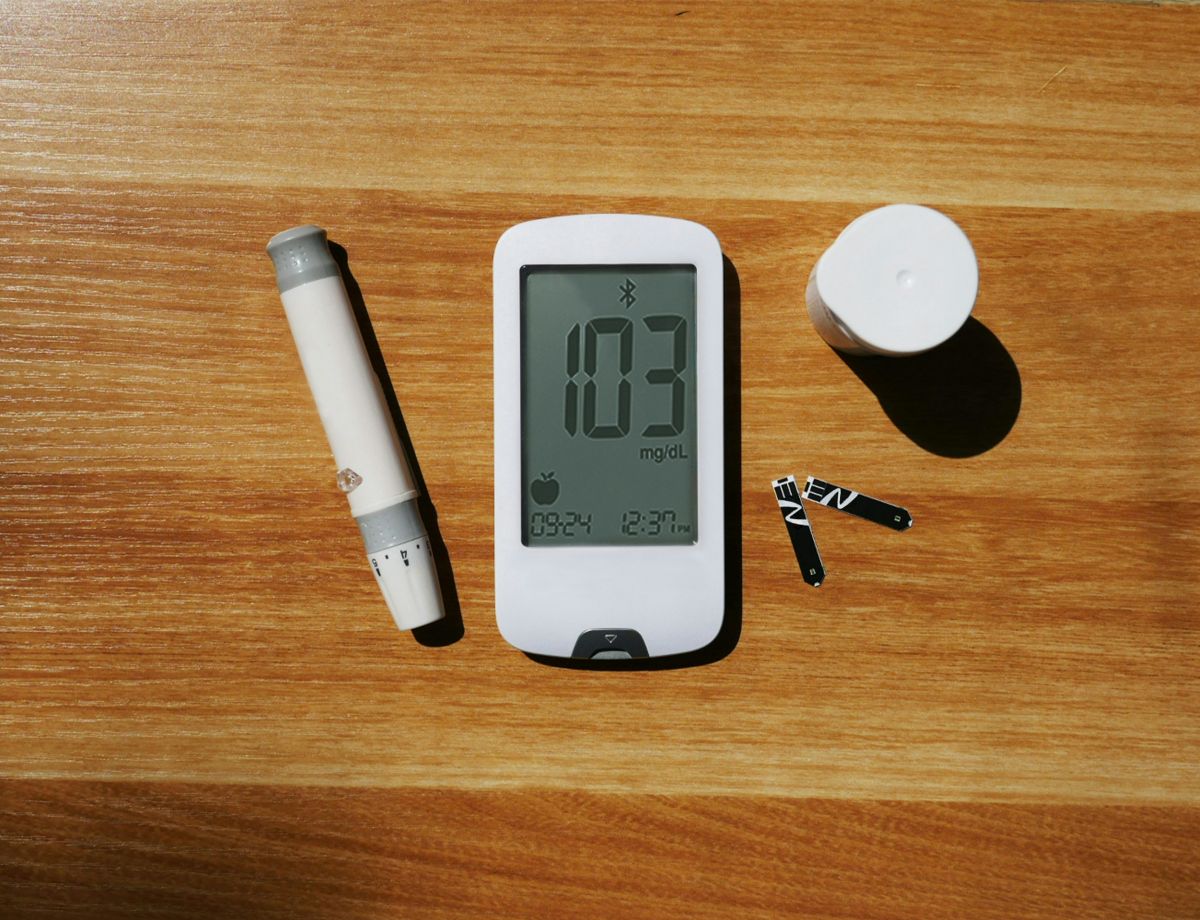Diabetes Care

Diabetes is a serious health condition that elevates blood sugar levels beyond healthy limits. It’s estimated that over 37 million Americans are diabetic—more than 11% of the population. Of those people, around 20% are undiagnosed and unaware they have the disease.1 Prediabetes is even more common. More than one in three Americans—around 96 million people—has prediabetes, and around 80% don’t know it.2 But with proper medical testing and healthy lifestyle choices, diabetes can often be managed or even prevented. The first step in prevention is understanding your risk. Take our free diabetes health risk assessment to learn more about your risk for diabetes.
Next Steps
Ask about a Referral
Speak with your provider about a referral to our program. If you don't have a provider, we can help you find the care you need.
Contact Us
Call to learn more about Diabetes Self-Management Education or the National Diabetes Prevention program hosted by Starr Regional Medical Center and the UT Extension of McMinn County.
Get Support to Live Your Healthiest Life
Our Diabetes Support Group meets monthly, except for July and December, at 6 p.m. on the Athens campus. Join us and make connections to support a healthy life.
What is Diabetes?
Normally when we eat something, our body releases insulin that allows our cells to absorb the sugar from our bloodstream. In a diabetic patient, the body doesn’t produce enough insulin, or doesn’t respond to insulin correctly. This causes blood sugar levels to rise, which can lead to many health issues, including heart disease, kidney disease, vision loss, or stroke.
What are the different types of diabetes?
Type I diabetes occurs when the body stops producing insulin entirely. It is usually diagnosed early in childhood, though it can sometimes manifest in adults. While the disease is genetic and lasts one’s whole life, patients can manage their blood sugar levels using diet, lifestyle changes, and insulin injections.
Type II diabetes arises later in life, and is caused by a mix of factors, including genetics, weight, age, and diet. It occurs when cells stop responding to the insulin the body produces, causing blood sugar levels to rise. Type II diabetes is very common, and accounts for more than 90% of diabetes cases in the United States.3 Once this disease develops, you must manage it for the rest of your life. The good news is that it can be prevented in most patients. Eating a balanced diet, engaging in regular physical activity and maintaining a healthy weight can help.
Gestational diabetes occurs only in females and results when pregnancy-related body changes affect the ability to make enough insulin. It typically goes away after birth but can increase the mother’s and the child’s risk for type 2 diabetes later in life.
Prediabetes is a related condition that precedes Type II diabetes. It occurs when blood sugar levels are elevated but aren’t yet high enough to qualify as diabetes. Prediabetes can be thought of as a “warning sign” – you may be at risk of developing diabetes, but there’s still time to change direction. With help from your doctor, you can adopt healthy lifestyle habits and avoid Type II diabetes entirely.
Do I have diabetes?
Certain symptoms can indicate diabetes or prediabetes. If you are experiencing unusual hunger or fatigue, blurry vision, tingling in the hands and feet, slow-healing sores, or increased urination (especially at night), you should talk to your provider immediately. However, diabetes and prediabetes often have no symptoms at all. This is why testing is so important.
What can I do to prevent diabetes?
The first step in preventing diabetes is knowing your risk. A simple blood sugar test can determine if you have diabetes or prediabetes, and your provider can help you understand your other risk factors, such as lifestyle and family history. With your provider’s assistance, you can form a plan of diet, exercise and medication (if needed) to keep your blood sugar at a healthy level.
Schedule a check-up with your provider and learn what you can do to stay healthy. To find a provider, visit our Find a Doctor tool or call 423.374.6571.
For more information on diabetes, visit www.cdc.gov/diabetes and www.diabetes.org.
References:
Quality Diabetes Care, Close to Home
The Starr Regional Diabetes Center promotes positive health and wellbeing to persons with diabetes, their families and/or caregivers. The Center's self-management education program is an essential component of effective diabetes management for patients. Jackie Berry, MS, RD/LDN, Director of Community Wellness, serves as the director of the Diabetes Center and its programs. She is committed to teaching the importance of self-care to prevent and minimize complications of the disease.
Educational sessions and consultations are offered between 8 a.m. and 4 p.m. Monday through Friday. Individual consultation is available upon referral by a physician.
Education & Prevention Programs
Diabetes Self-Management Education (DSME)
These sessions are offered to individuals and scheduled at your convenience. The sessions include:
- Self-monitoring blood glucose (SMBG)
- Disease process information
- Meal planning
- CHO counting
- Exercise
- Using medications
- Detecting and treating chronic and acute complications
- Development of personal strategies to promote health and behavior change

National Diabetes Prevention Program
Have you been told by a healthcare professional that you:
- Are at risk for getting diabetes?
- Have prediabetes?
- Have borderline diabetes?
- Have high blood sugar or glucose?
- Had gestational diabetes?
You may be at high risk for type 2 diabetes, but there is something you can do about it.

The Centers for Disease Control and Prevention-led National Diabetes Prevention Program, hosted by Starr Regional Medical Center and the UT Extension of McMinn County, can help you make a change for life. This FREE program helps you learn how to change your lifestyle to prevent type 2 diabetes. Groups meet for 16 weekly sessions and six monthly follow-up sessions.
You can prevent or delay type 2 diabetes! Join this program and make a change for life. Call 423.744.3249 to learn how to enroll.

Diabetes Support Group
The Diabetes Support group, for those diagnosed with diabetes and their caregivers and/or family members, meets the third Thursday of each month, except for July and December, at 6 p.m. in the Physicians Dining Room at Starr Regional Medical Center - Athens.
A speaker provides an educational presentation or information on various topics or issues relevant to patients with Diabetes each month. Call 423.744.3249 for more information.
